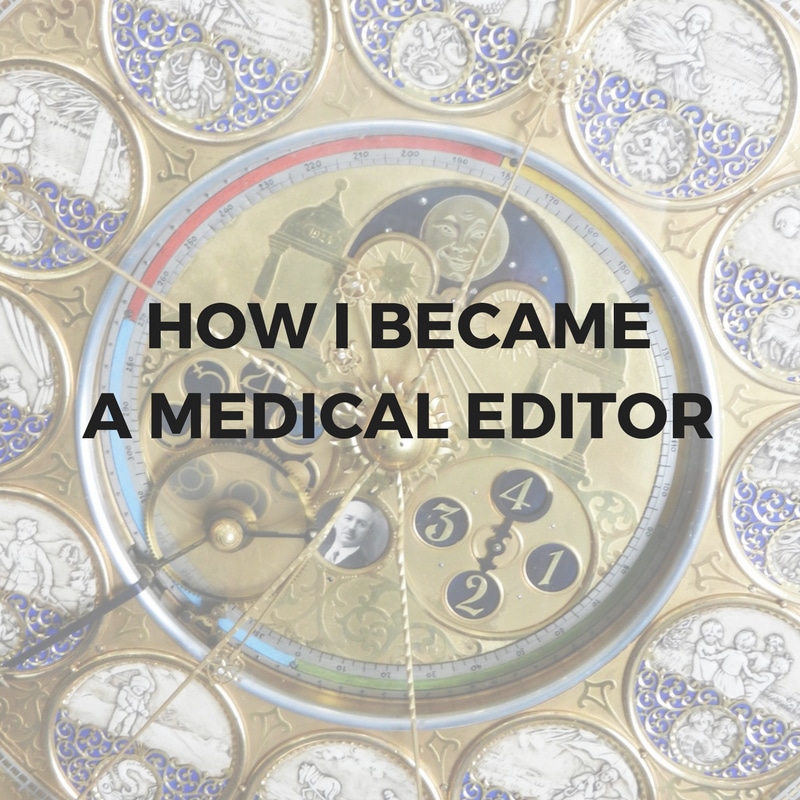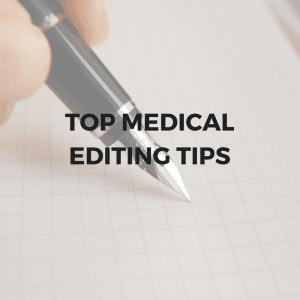A confession: I didn’t grow up wanting to be a medical editor. I don’t think I’ve met anyone who did, but that could be because I haven’t met enough medical editors yet. Obviously, I didn’t know what medical editors were, and it would have been difficult to explain the nature of the job to a young boy. Even as a teenager, I would have found it difficult to fully comprehend the position of a medical editor and why I might be suited for it as employment.
It took me a while as a teenager to discover any sort of direction: I was good at science, but I was also good at language-based subjects (in addition to my A grades for O-level biology and chemistry, I got A grades in O-level Latin and English Literature – apologies for the not-so-humble-brag and for showing my age). I believe I made the decision to do the four sciences for A-level, and therefore decide on biochemistry for my degree, because being a scientist seemed more tangible as a job than something that was based on studying Latin and English literature.
I didn’t realise that I could fuse my two areas of interest into one. While studying biochemistry and obtaining my doctorate, I was still a voracious reader and was writing all the time (news items in departmental newsletters, film reviews in the student newspaper, a departmental pantomime that was performed on stage), but my mindset was fixed on becoming a scientist, with reading and writing as hobbies that I enjoyed and which allowed my other side to express itself.
Obviously, there was a turning point that changed my direction – it was the day of doing group interviews and writing/editing tests for a junior position in a medical communications company: in answer to the question, ‘Does anybody have a preference for editing?’ after the writing and editing tests, something made me put my hand up and say, ‘I think I might be interested in editing’, which led to a junior editor position at the company and the start of my career. However, there was an earlier incident that was the start of the journey, even if I didn’t fully appreciate it at the time.
I was doing a postdoctoral research fellowship at the Indiana School of Medicine, IUPUI in Indianapolis, Indiana, studying transcription factors in the NF-κB pathway linked to cancer. After I had been working in the lab for over six months, my supervisor asked me to look at a journal article that other members of the research group had submitted but which had been rejected. They had been asked to do some minor molecular biology to supplement the results, which I would subsequently do, and to rewrite the paper to make it acceptable for publication. I think that the rewriting was due to the fact that the main investigators didn’t have English as their first language, but I can’t recall exactly.
I had written my PhD thesis and two journal articles associated with that research, but I hadn’t done anything since then. However, when I had finished the experiments and started to look at the paper, I was surprised at how much I enjoyed the process of tidying up the language and polishing the article. It wasn’t a complete rewrite, just applying my fresh eyes (and the equivalence of copy-editing) to writing that needed to be tightened and clarified, and although I don’t recall exactly what I did to the article to prepare it for publication, I do remember how much I enjoyed the process and the feeling of pride when the revised manuscript was accepted. [You can see it for yourself: this is the link to the PubMed entry, or you can download the PDF of the article at this link.]
Reading the article again, I still don’t remember much about the editing I did on the article (and any proper editing would have been done by the subeditors at the journal), and the details of my contribution to the science are lost to the winds of time; however, I will always remember the feeling I got from this experience, and the realisation that my future might be in the field of science communication. I would mention this experience in interviews as the indicator of why I was applying for the job, and even though there was a long way to go before I could call myself a medical editor, it was definitely the starting point. I thought I would write about it here in case anybody reads this and wonders about how you can become a medical editor – there are many different ways, but this was mine.



